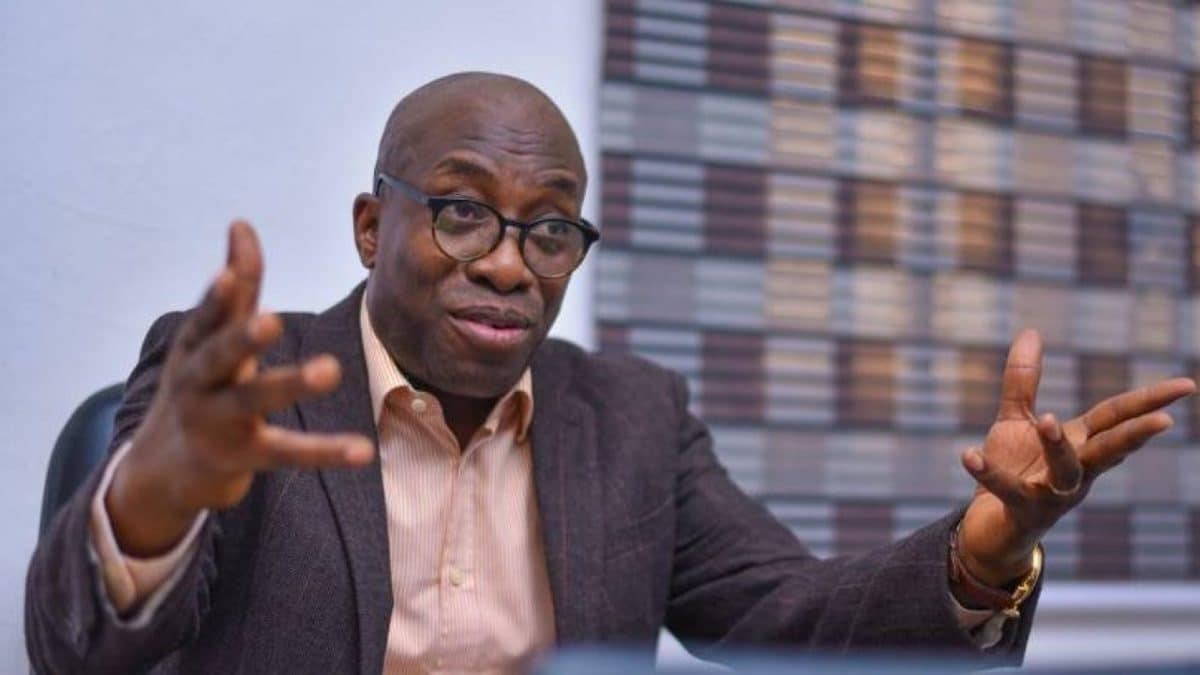Politics
PDP Crisis: Sowunmi Reveals Why Party Lost 2023 Elections, Blames BoT’s Missteps

PDP chieftain Sowunmi exposes the internal issues that led to the party’s loss in the 2023 elections, criticizing the missteps of the Board of Trustees (BoT) and leadership.
Since its 2015 defeat to the All Progressives Congress (APC), the Peoples Democratic Party (PDP) has encountered considerable challenges, experiencing a gradual decline in influence, particularly in crucial states. Segun Sowunmi, who served as the campaign spokesman for Atiku Abubakar during the 2023 presidential election, shares his reflections on these struggles and suggests potential strategies for revitalizing the PDP’s future prospects.
Sowunmi, who once ran for governor in Ogun State, believes the PDP might have seen better results in the 2023 election if they had chosen a different ticket—namely Atiku Abubakar alongside Nyesom Wike, now serving as Minister of the Federal Capital Territory (FCT). He draws comparisons to past efforts like their run in 2019 when pairing Atiku with Peter Obi failed to achieve their goals. Sowunmi contends that partnering with influential leaders such as Wike could have bolstered voter support for the party in crucial states.
Sowunmi explores the potential of an Atiku-Wike or Atiku-Obi ticket for the PDP in 2023, stressing a pragmatic strategy with a candidate capable of uniting the party and appealing across regions. He highlights that the PDP’s strength is rooted in its ability to balance various interests, drawing on past successes where it has offered presidential tickets to candidates from both southern and northern areas. However, he warns against depending solely on historical alliances since voter dynamics can evolve over time.
Sowunmi emphasizes the difficulty of selecting a candidate capable of unifying the party. He points out that what happened in 2023 should be seen as a learning experience, reminding us that political triumph cannot rely solely on past achievements. The nation’s political atmosphere and public sentiment may shift over time, rendering former tactics less successful. He cautions against assuming an Atiku-Obi alliance will automatically lead to electoral victory since their supporters might not entirely coincide, with each group being driven by unique motivations.
Sowunmi identifies another challenge facing the PDP: its struggle to adapt to changing political dynamics. He criticizes the assumption that merely creating a popular ticket will secure election victories and emphasizes the need for a deeper grasp of voter issues. Sowunmi urges party leaders to conduct comprehensive polling and actively engage with citizens, highlighting that social media doesn’t always reflect true public opinion. To address this gap, he advocates for increased grassroots-level campaigning by the party.
READ ALSO: 2027 Presidency: Sowunmi Shares Atiku’s Reaction After Asking Twice
Sowunmi contemplates the possibility of an Atiku-Saraki ticket, but considers it challenging due to regional dynamics. Although having two candidates from the Upper Niger region (Atiku and Bukola Saraki) might be feasible, it could struggle with securing support in the South. He believes that PDP leaders should avoid limiting their candidate selection to just a few individuals because the party’s issues are systemic and need new perspectives. In his opinion, a successful election strategy should incorporate a broader spectrum of candidates and ideas rather than relying on familiar faces repeatedly seeking leadership roles.
Tackling the internal issues within the party, Sowunmi urges deeper introspection and reform. He advocates for the PDP to prioritize crafting a comprehensive strategy that extends beyond just securing a presidential ticket. The focus should be on establishing an institution capable of resonating with Nigerians through concrete policies and offering clear differentiation from its competitors. Sowunmi cautions against viewing elections merely as opportunities to win tickets, emphasizing that success hinges not only on obtaining these but also on ensuring candidates have strong platforms and genuine appeal to voters.
Sowunmi contends that the leadership crisis within the PDP can only be addressed through comprehensive institutional reform. He recommends an early convention to facilitate a fresh beginning and ensure that everyday Nigerians have their voices heard. By restructuring, the party could improve its decision-making processes and tackle systemic problems that have troubled it in recent years.
Sowunmi voices doubt regarding the existing strategy to resolve the PDP’s leadership crisis, especially emphasizing figures such as Wike. Although he recognizes Wike’s contributions to the party, Sowunmi contends that attention should be directed towards addressing broader issues confronting the PDP rather than focusing on particular individuals. He emphasizes the necessity for the party to tackle its fundamental challenges and transcend personal disputes.
Sowunmi contends that addressing the PDP’s crisis necessitates a thorough strategy involving authentic reforms and an improved grasp of voters’ needs. He encourages party leaders to adopt courageous measures to rejuvenate the party and prepare it for future triumphs. By earnestly evaluating the party’s trajectory and committing to reform, the PDP can aspire to reestablish itself as a credible opposition contender in Nigerian politics.
